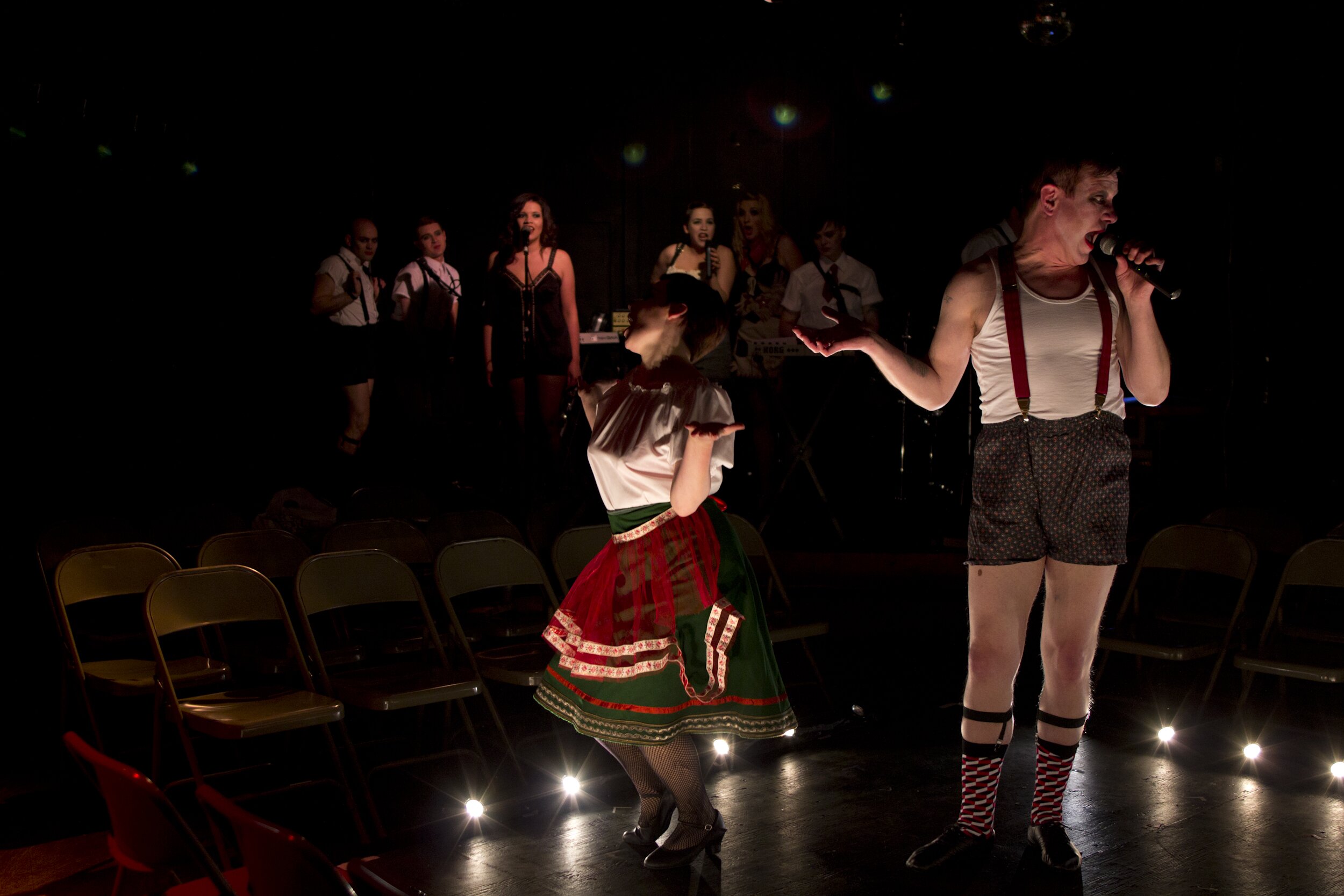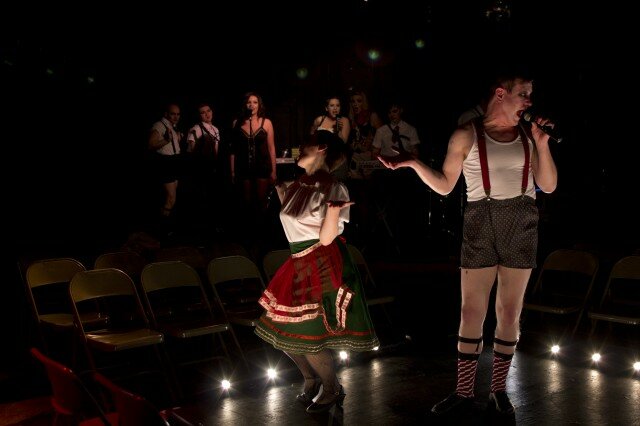I’ve spent much of this week in such an un-exotic framework of mundane necessity, it’s almost obscured my memories of last week’s Hypnotikon Fest at the Triple Door. Almost.
Musically, Seattle’s first sorta major Psych Rock Festival couldn’t be faulted, as local and national psychedelic acts plied their surreal, sometimes symphonic currents of musical noise. The venue itself, though, ultimately felt a bit unwieldy. Psychedelic music, by its nature, is designed to immerse a listener, so the Triple Door’s spacious digs, spread-out tables, and supper-club ambience muted the heady ambience generated by the music. On the plus side, it imbued the air with a strange sense of decadence, as though spectators were upper-crust Roman senators watching holy fools and minstrels play for their amusement. On the flip side, it distanced the audience from music that’s normally gloriously interactive.
But there are worse things in life than not being jammed next to a massive PA in a crush of standing, surging people in a sweaty nightclub. And I come to praise Hypnotikon, not bury it.
Fungal Abyss opened up Hypnotikon Day 1 with expansive free-form jams steeped deeply in ambient noise. Melodies bobbed in and out of the atmosphere like a handful of jewels at the bottom of a dark lagoon, and the band displayed a gift for making their musical tangents feel like envelope-pushing invention, not simple wankery. Midday Veil, meantime, deepened my band crush on ‘em with another heady set. Few psych rock bands get so unabashedly experimental, yet still emerge with solid pop hooks. Singer Emily Pothast should be permitted to stir the dreams and haunt the nightmares of everyone in earshot with her voice and almost kabuki theatrical sense.
Wondrous things sometimes come in the unlikeliest packages, and Lumerians, Hypnotikon’s third mainstage act last Friday, more than demonstrated that truism. The San Francisco outfit looked more like a bunch of Silicon Valley cubicle moles than psychedelic explorers, which gave their percussive, throbbing space rock the unexpected punch of a Stealth Bomber. If there’d have been a dance floor, there wouldn’t have been an unshaken booty in the house. Last but surely not least, Cave’s largely instrumental groove rock moved with concise purpose, even as they spattered the momentum with sprays of keyboard whirrs and movie-soundtrack richness. Over in the Musiquarium Lounge, Tokyoidaho offered a terrific set of shoegazer pop, anchored by Peter Marchese’s resonant baritone voice (I missed Ecstatic Cosmic Union’s Musiquarium performance).
Saturday night drew a larger crowd, probably due to the presence of psych-rock legend Silver Apples. Happily, the three preceding mainstage acts offered plenty of pleasures of their own.
Seattle shoegazers Jetman Jet Team crafted one stellar (literally and metaphorically) effort with their recent full-length, We Will Live the Space Age. Live, they were a joyous surprise, vaulting into unknown territory with a set of unfamiliar (but still hooky and vast) material played with a recklessness not always present on Space Age’s carefully-constructed pop framework. And speaking of recklessness, Texas transplants Night Beats laid down some seriously vicious garage rock, with singer Danny Lee Blackwell’s crazed guitar cutting the air and bass player Tarek Wegner clambering atop some of the tables at the front (Wegner’s prone to crowd surfing in a more traditional venue). Yes, they rocked most mightily.
Two people manipulating their laptops isn’t always a recipe for riveting live showmanship, but then again, Cloudland Canyon aren’t about flash. They just generate a lush wall of sound that informs modern electronic music with enchanting and odd touches that render it quintessentially psychedelic. Some of the best visuals of Hypnotikon’s impressive light show–rolling landscapes projected updside-down and in negative over one another–bolstered the decidedly cinematic sound.
Hypnotikon’s most inspirational hour, not surprisingly, came from the one-man incarnation of psych vets Silver Apples. Bathed in the brightest orgy of colored lights and images to bombard Hypnotikon’s stage all weekend, keyboardist/singer Simeon played material that seamlessly spanned his entire career, delivering the songs in a frenetic but playful voice as his bank of keyboards and oscillators bleeped, throbbed, and sang. It didn’t just paint frescoes on spectators’ eardrums: Simeon’s music rang with impish charm and a sense of humor that made its septuagenarian creator seem younger than yesterday.


